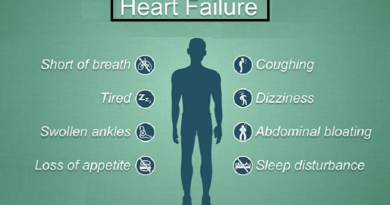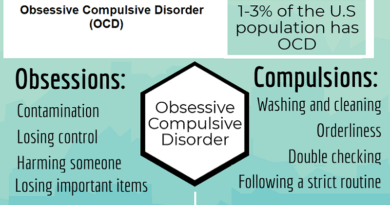Allergic Asthma: Causes, Symptoms, Diagnosis and Treatment
Allergic asthma, a specific type of asthma, affects a significant portion of the population and can have a profound impact on the quality of life. Breathing is a fundamental aspect of life, yet for millions of people around the world with asthma, it is not an easy job. In this article, we explore what allergic asthma is, its causes, symptoms, and treatment options. With knowledge, we can empower ourselves and our loved ones to manage this condition effectively and breathe freely.
What is Allergic Asthma?
Asthma, a chronic respiratory disease, manifests as inflammation and narrowing of the airways, leading to difficulty in breathing. Within the broader classification of asthma, allergic asthma stands as the most prevalent type. It is triggered by allergens, which are substances that the immune system identifies as harmful even though they are harmless.
Causes and Triggers of this condition
An interplay between genetic predisposition and environmental factors causes the condition. Those with a family history of asthma or allergies are more likely to develop This type of asthma. However, the onset and severity of the condition can be influenced by various triggers, including:
- Pollen: Commonly found in trees, grasses, and weeds, pollen is a notorious seasonal trigger for this condition, causing flare-ups during spring and fall.
- Dust Mites: Microscopic creatures living in house dust, particularly in bedding, upholstery, and carpets, dust mites can be potent asthma triggers.
- Pet Dander: Tiny skin flakes from pets, such as cats and dogs, can become airborne and trigger allergic reactions in susceptible individuals.
- Mold Spores: Found in damp and humid environments, mold spores can enter the airways and provoke asthma symptoms.
- Cockroaches and Rodents: The presence of cockroach droppings and rodent hair can also act as asthma triggers.
- Air Pollution: Particulate matter, ozone, and other pollutants can worsen asthma symptoms and decrease lung function, especially in urban environments.
- Tobacco Smoke: Secondhand smoke is particularly harmful to individuals with this condition, exacerbating their condition.
Symptoms
Recognizing the symptoms of allergic asthma is vital for early diagnosis and effective management. Some common signs to watch out for include:
- Wheezing: A high-pitched whistling sound when breathing, often more noticeable during exhalation.
- Shortness of Breath: Difficulty in breathing, with a feeling of breathlessness or suffocation.
- Coughing: Frequent and persistent cough, especially at night or early in the morning.
- Chest Tightness: A sensation of pressure or constriction in the chest.
- Increased Mucus Production: Thick and sticky mucus in the airways, leading to congestion.
It is essential to remember that symptoms can vary from person to person and may be influenced by triggers and individual sensitivities.
Diagnosis
If you suspect allergic asthma or experience any of the symptoms mentioned, seeking medical attention is crucial. A healthcare professional, often a pulmonologist or allergist, will conduct a comprehensive evaluation, including a detailed medical history, physical examination, and lung function tests such as spirometry.
Treatment
Once diagnosed, the management of allergic asthma generally follows two main approaches: long-term control and quick-relief measures.
1. Long-Term Control:
- Inhaled Corticosteroids: These anti-inflammatory medications are the cornerstone of asthma treatment, reducing airway inflammation and preventing symptoms.
- Long-Acting Beta-Agonists (LABAs): Used in combination with inhaled corticosteroids, LABAs help to relax the airway muscles, making breathing easier.
- Leukotriene Modifiers: These medications block the action of leukotrienes, which are inflammatory molecules that play a role in allergic asthma.
- Immunomodulators (Omalizumab): Reserved for severe allergic asthma cases, these drugs help neutralize specific immune system components responsible for allergic reactions.
- Allergen Immunotherapy: Also known as allergy shots, this treatment involves administering gradually increasing doses of allergens to desensitize the immune system and reduce asthma symptoms triggered by these allergens.
2. Quick-Relief Measures:
- Short-Acting Beta-Agonists (SABAs): These medications provide rapid relief during acute asthma attacks by quickly relaxing the airway muscles.
- Anticholinergics: In combination with SABAs, anticholinergic drugs can further dilate the airways.
It is crucial to follow the prescribed treatment plan, attend regular check-ups, and communicate openly with healthcare providers to manage allergic asthma effectively.
Prevention
Apart from medical management, several lifestyle changes can significantly improve the well-being of individuals with allergic asthma:
- Identify and Avoid Triggers: Understanding personal triggers and taking steps to avoid or minimize exposure is pivotal in managing allergic asthma effectively.
- Maintain Indoor Air Quality: Regularly clean and vacuum the house, control humidity, and consider using air purifiers to reduce airborne allergens.
- Adopt a Healthy Diet: A balanced diet rich in fruits, vegetables, and omega-3 fatty acids can support lung health.
- Regular Exercise: Engaging in regular physical activity can enhance lung function and overall fitness.
- Quit Smoking: For smokers with allergic asthma, quitting is an absolute necessity to prevent further deterioration of lung health.
SUMMARY
Allergic asthma, while a prevalent condition, can be managed effectively with the right approach. Understanding the triggers, symptoms, and treatment options empowers individuals with this condition to lead fulfilling lives. By fostering a partnership between healthcare providers and patients, and adopting a proactive lifestyle, those affected by it can breathe freely and embrace life’s adventures with confidence. Remember, knowledge is the key to unlocking the path to a vibrant and healthy future, where each breath is a gift to be cherished.
If you suspect that you may have symptoms, Helalmedical can help, offering quick, private, and convenient testing options. You may contact us here: Facebook page.




